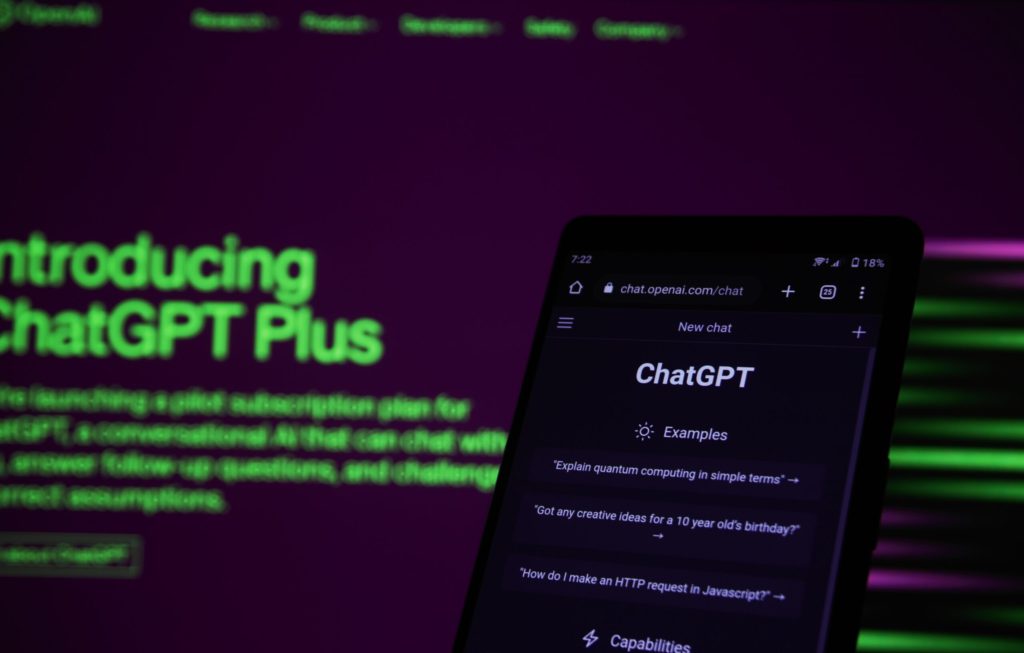
I engage with various individuals and groups both online and offline, and it’s evident that the topic of Artificial Intelligence (AI) is gaining significant attention in the business world. Everywhere I go, people are discussing the impact of AI on their industries and the potential benefits and challenges it presents.
At a recent business meeting, I had the opportunity to connect with a seasoned AI specialist who was invited to share his insights on how artificial intelligence could enhance our Bid Solutions Service. The encounter proved to be fascinating.
David George, a seasoned professional with extensive experience in AI development, highlights the growing significance of chatbots. He notes that these AI-powered interfaces offer a more intuitive and user-friendly way to interact with computers and access information. George names notable AI chatbots such as Google Bard, Microsoft Bing, and OpenAI ChatGPT, each with its unique strengths and limitations, as they continue to evolve in their respective development stages. https://www.linkedin.com/in/dfgeorge/
During the meeting, a question I posed to test AI’s capabilities was not fully addressed by the AI’s response, despite being technically accurate. The AI failed to grasp the client’s needs and didn’t provide a clear explanation of its proposed solution. David refined his question for the AI response generator, but even then, the response fell short of what was required.
This raises the question of why an AI system, capable of accessing vast amounts of public domain information, cannot provide a better response to a straightforward bid question. The answer lies in the fact that, unless the input provided to the bot is extremely detailed, the response generated may not be significantly better than what a human could come up with on their own.

Striking a balance
Artificial intelligence collects data and utilises it to provide straightforward and concise responses to your inquiries, lacking the emotional depth and subtlety that human interaction provides. For me, this limitation is its most significant shortcoming.
As humans, we crave emotional connection, which we establish through narratives, physical contact, empathetic silence, and a multitude of other methods that are often rooted in intuitive emotional understanding. AI does not seem to possess this emotional intuition, at least not yet.
So, it can tell a story, answer a question, develop a technical response and be factually correct in its content. Of course, how it does that depends on the question it is asked by the human needing the information. But what it delivers is dry, without personality, without emotion.
As humans, we have an innate need for emotional connection and interaction. If we rely solely on AI as a resource in business, we risk sacrificing the personal touch that is inherent in human communication. This raises concerns about the potential loss of emotional intelligence and the dehumanisation of our interactions. Will we lose the ability to empathise and connect with others, or will we become overly dependent on emotionless automation?
I earnestly hope that we can find a way to strike a balance between the advantages of artificial intelligence and the importance of interpersonal connections. I envision a world where we can harness the power of AI to enhance our lives, while still preserving the emotional depth and personal interactions that make us human. By fostering a dialogue between humans and AI, we can create a symbiotic relationship that allows us to benefit from the strengths of both worlds. This collaboration will enable us to retain our humanity and personal touch, all while leveraging the vast knowledge and insights that AI can provide.
Benefits and concerns
During a recent gathering of the Emotional Geography community that I belong to, we delved into the topic of leveraging emotional mapping to foster self-awareness and authentic forward planning. As a supportive network,
our goal is to create a secure environment where individuals can explore their life’s journey through storytelling, leading to a deeper emotional understanding and fulfilling future plans.
We all acknowledge the benefits of incorporating AI into our businesses, such as its ability to efficiently provide specific information and outperform basic keyword searches. However, we share concerns that over-reliance on AI may erode the personal connections and emotional intelligence that are essential for effective collaboration and customer relationships.
Our clients appreciate the personal touch of interacting with a human representative, who can provide tailored support and service. While AI can’t replicate this entirely, it can complement and enhance the experience by offering additional assistance and efficiency.

I asked ChatGPT
I’m not sure what to think about AI. Some people find it fascinating, while others are intimidated by it. There are so many questions surrounding AI, but why not ask ChatGPT for some insights? It’s a powerful tool that can provide valuable information and answers to your questions.
I asked ChatGPT about the capabilities of AI with regards to emotional interactions, and it provided me with an informative response. It turns out that AI can engage on an emotional level, albeit to a limited extent. This is made possible by Emotion AI, a technology that facilitates a more natural dialogue between humans and machines. By utilising facial analysis, voice pattern analysis, and deep learning, Emotion AI can recognize, interpret, process, and even simulate human emotions. However, owing to the inherently subjective nature of emotions, this technology is particularly susceptible to bias.
I’m still on the fence about it, how about you?

Leave a Reply